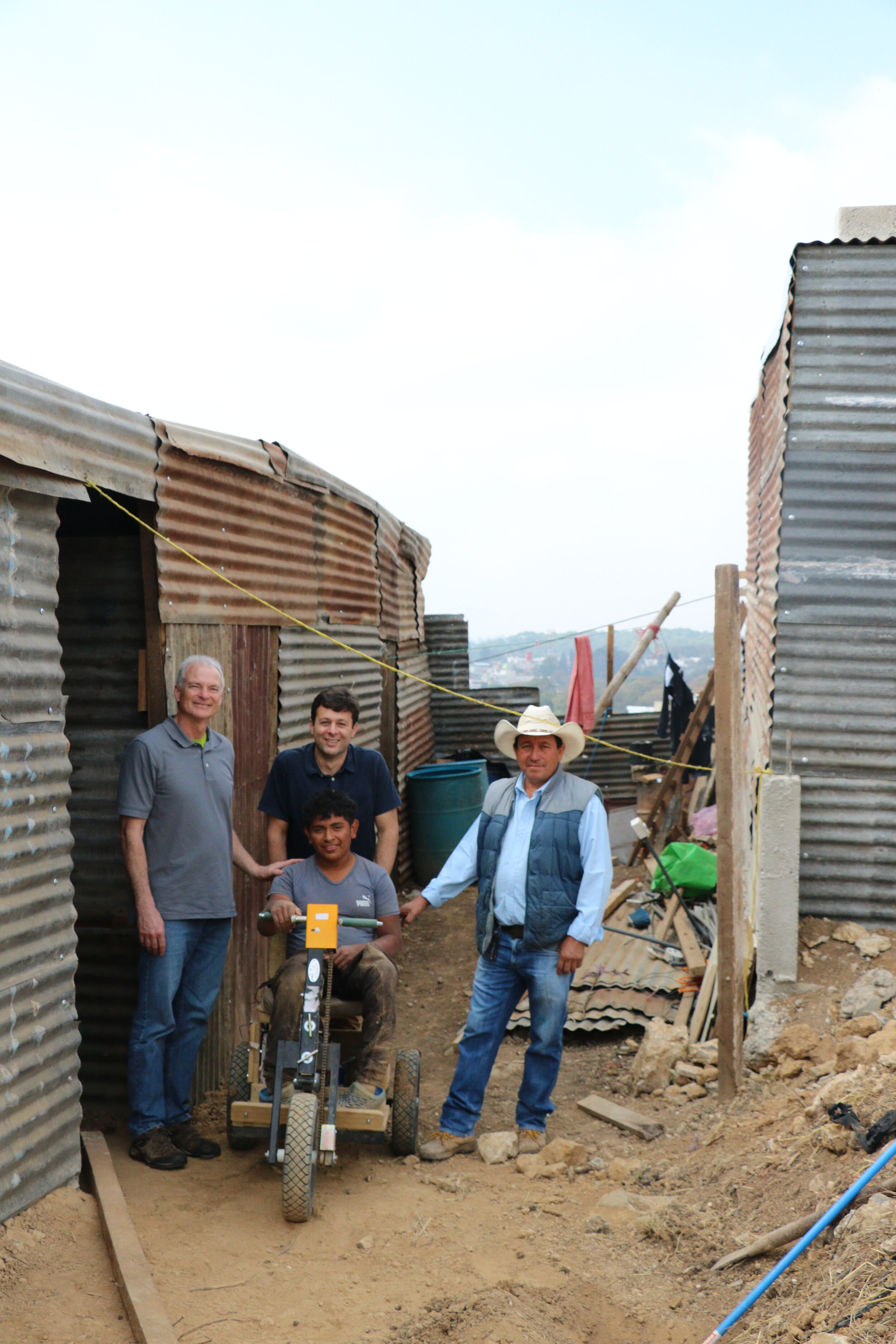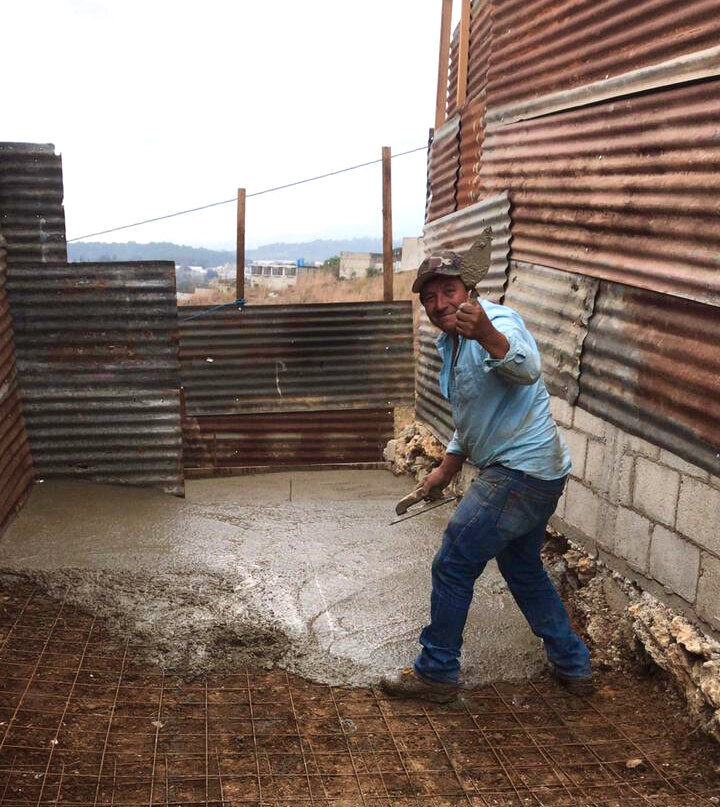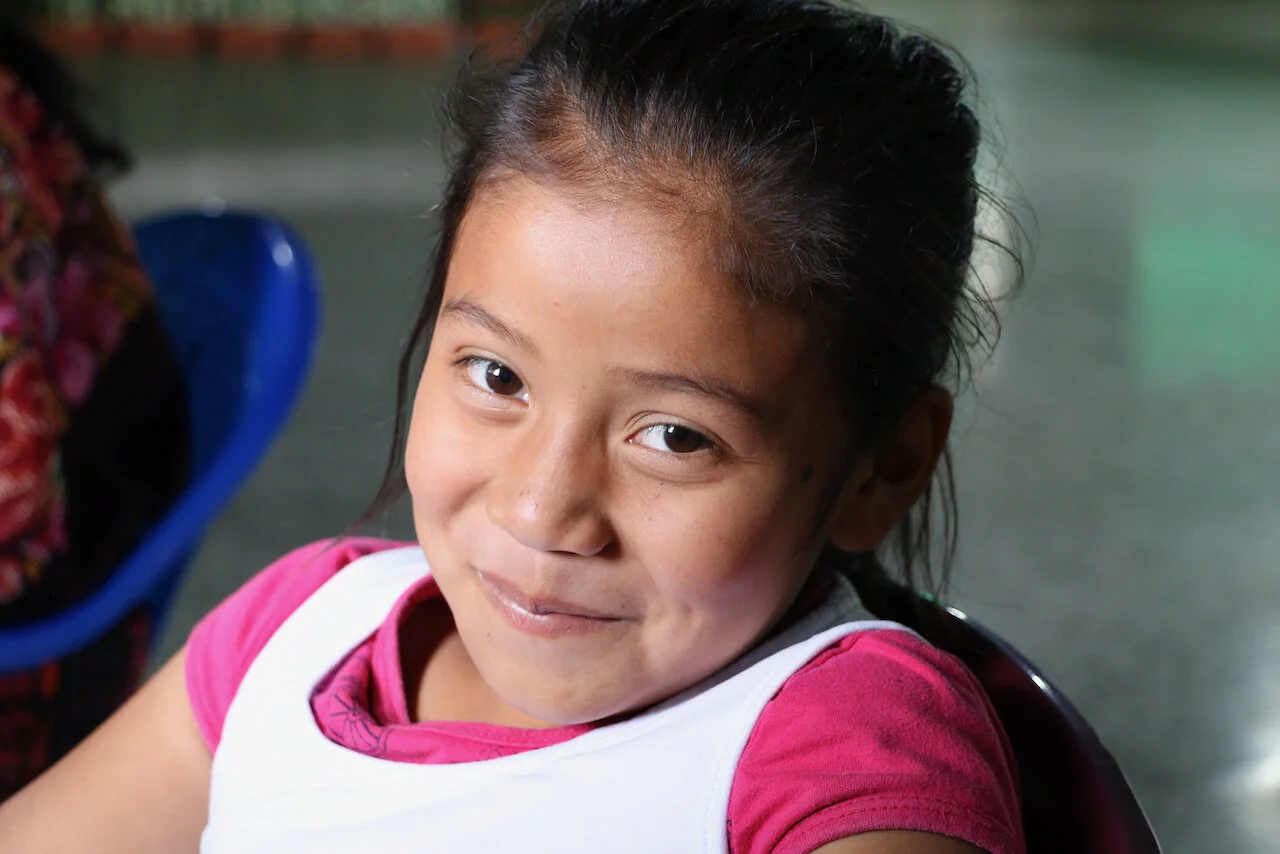The Garbage Dump in Guatemala City is known as an awful place. For one thing, there’s garbage everywhere.
Every morning before 5, hundreds of yellow trucks soldier out in all directions, and when they come back they’re full of everything nobody wants. The guys riding on the trucks sort through it before they throw it in; the guys riding in the trucks sort through it on the way; the people working down in the dump sort through it when it’s dropped off; then a bulldozer flattens it out to make room for the next truck. Anything of value is sold to recyclers or kept for personal use. So of course there’s trash everywhere - it’s raw material for the neighborhood industry.
In the neighborhoods surrounding the landfill, almost every family has at least one member working in or around it. It’s hard work, and it’s dirty, but it pays if you hustle. Not enough to buy property in a nicer part of town, but sometimes enough to get your kids through school.
The trash isn’t just in the dump. It spills onto sidewalks, gathers inside doorways, and it’s in the air. It’s underneath everything, too. The trucks unload into a ravine, and every so often, when the piles are high enough, people build shelters and start living there. Neighbors get to know each other. Huts become houses and alleys become streets. But when you dig footers to pour foundations, your shovel cuts through plastic bags by the hundred, and the pile you’ve pulled up looks like what an archeologist would study if she wanted to know what the world was like a thousand days ago.
The people who live in these neighborhoods know it’s a curiosity. They know it doesn’t look great, that opportunities are scarce, and that it’s not a safe place for them, for their kids, or for anyone. But they also know that as much as their
community is degraded by poverty and crime, it’s also home to kind, neighborly, hardworking and generous people, doing the best they can in hard circumstances.
There are a number of great organizations working in the area, helping provide education, nutrition, spiritual and psychological help. One neighborhood church set up a medical clinic to serve families around the landfill, and Vine has been working with Dr Layla Chanquin and her team for more than ten years. I’ve never been there when I didn’t see Dr Layla managing two or three jobs at once: attending patients, hosting visitors, managing the staff. Dr Bruce Allsop and I visited recently and we met a family who had used medicine provided by Vine.
The streets aren’t named, much less mapped, so Bruce and I would have been hopelessly lost without our guides, neighbors who work for the clinic. They told us as we walked that two bodies had been found murdered that morning, a few streets over. Their daily work wouldn’t stop, though, so they kindly led us to Marta’s house.
It wasn’t a new house, meaning it wasn’t a shack built out of sticks and a tarp. But it also wasn’t concrete block, so they hadn’t managed to make the big improvements. It was small and dark. The stove, the bed, and the table were all in the same room, and the bed held the laundry, two girls, and a cat. Schools are still not open for in-person learning, so the girls were penciling through math worksheets while the cat looked for hand to pet it.
I asked Marta about her family, and how they came to need medicine. (Marta said she wanted you to hear this story. I’ve changed some names).
“My mother has a food cart that she rolls out to the corner at night, to sell people dinner. My brother, my daughter, and my son were helping her set up one afternoon, and some guys showed up and started shooting. They killed the guy they were after but they shot a lot of other people too. My mom died right there. My brother died. My daughter was shot but she did OK. My son was shot and it was bad. When they carried him to the ambulance they didn’t know if he was going to make it, he was bleeding so bad. They saved his life, but when they released him from the ER, his leg was a mess and it was a lot to take care of. They said we had to give him antibiotics or he would become infected.” Whatever the risk of infection would be in other neighborhoods, it was worse here, where the contents of three million trash cans were thrown every day.
She looked over my shoulder and said “come in and let them see it.” I turned around and Joel, her son, maybe eleven years old, poked his head out from the other room. He didn’t want to talk, and he definitely didn’t like the look of the camera we’d brought with us.
He said he didn’t want to be in any photos, and I promised he wouldn’t. When I put the camera away he came in, put his right foot on the table, and pulled up his pant leg. Most of his calf was gone, and what was left was scarred. “It took a long time. The guy at the hospital wrote us a prescription, but how could we fill it? My mother and brother had died, and my daughter was hurt” - María José, 16, raised her arm to show where a bullet had gone through. “But Doctor Layla took care of us. She gave us the antibiotics. And other things too. He never got infected, and he healed up. He’s doing great.”
We told Marta we were sorry about her mother and her brother, and we were so glad her kids were doing well. We told her there were people she’d never met who worked to get her that medicine, and did she mind if we got a photo for them? Without Joel of course. She said she’d love for you to see her and her girls, and would we please pass on to you her gratitude for the medicine. So: thank you, from a woman who lost people she loves, and could have lost more. But she didn’t. You, Dr Layla, her staff, and everyone who supports Vine played a part. Thank you!
The Vine story goes like this: there’s a street no name, because it was built by on top of a landfill, by hand, by the people who live there. There’s a family there who had a medical emergency, and they needed help. A local doctor gives them so much - her care, her skill, and a safe place. But a key part of surviving the emergency was using medicine that was out of reach. They had a prescription they couldn’t fill, and you filled it for them. It happens all over Guatemala. In the city, in the woods, to all kinds of families and all kinds of clinics. There’s a person with a medical need, there’s a professional willing to administer it, and you send the medicine. It only works with your help.
One last thing that may be worth noting. Every organization who receives medicine from Vine is required to keep a current physician’s license on file with us, along with current legal documents that define and formalize their mission. We know, in other words, all of the professionals who are administering the medicine we send, and we know which communities they’re serving. We just have to know that they’re doing good work, we don’t distinguish based on why they’re doing it. But over these thirty years together, it’s clear that the vast majority of our partners are doing it because they want to be a tangible expression of Christ’s love to people around them. That’s why we at Vine do it, too, and we’re grateful to do it together with you.
- Brady Greene

















